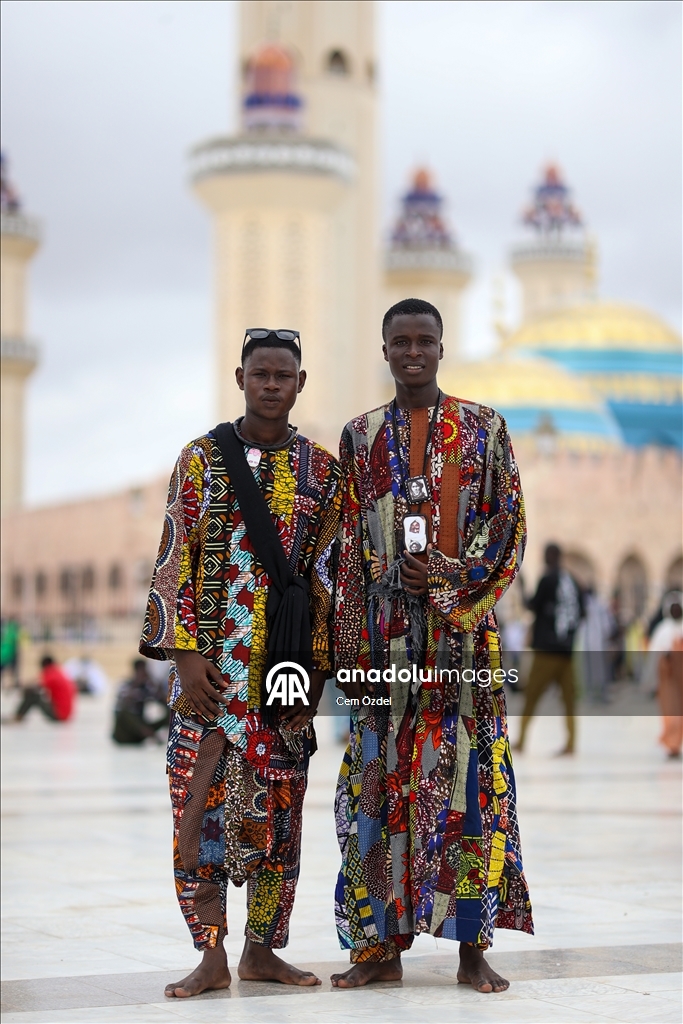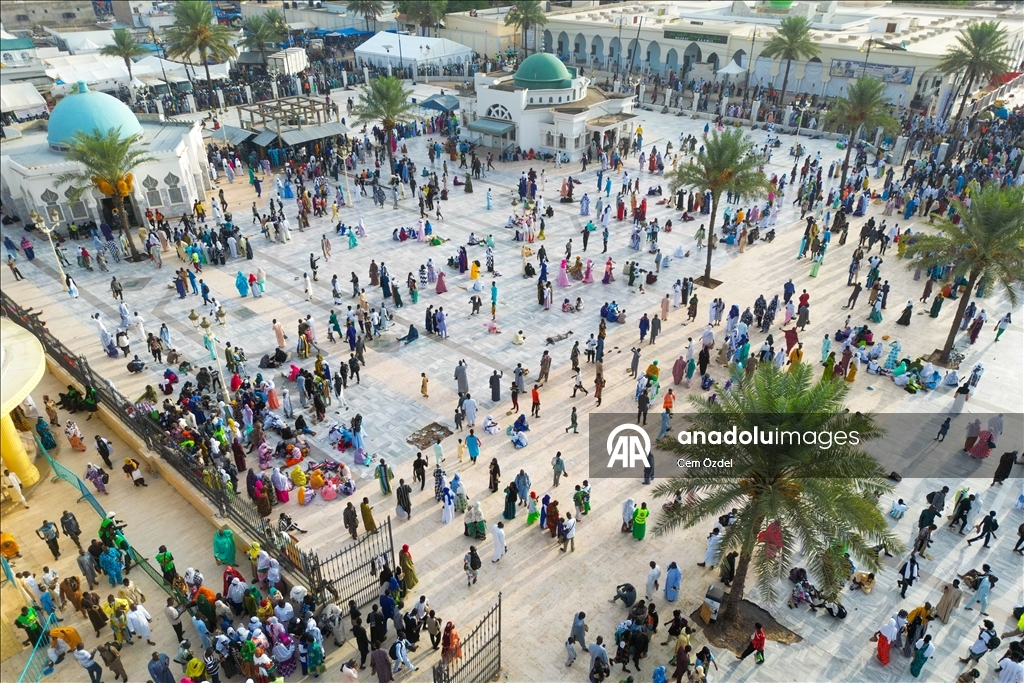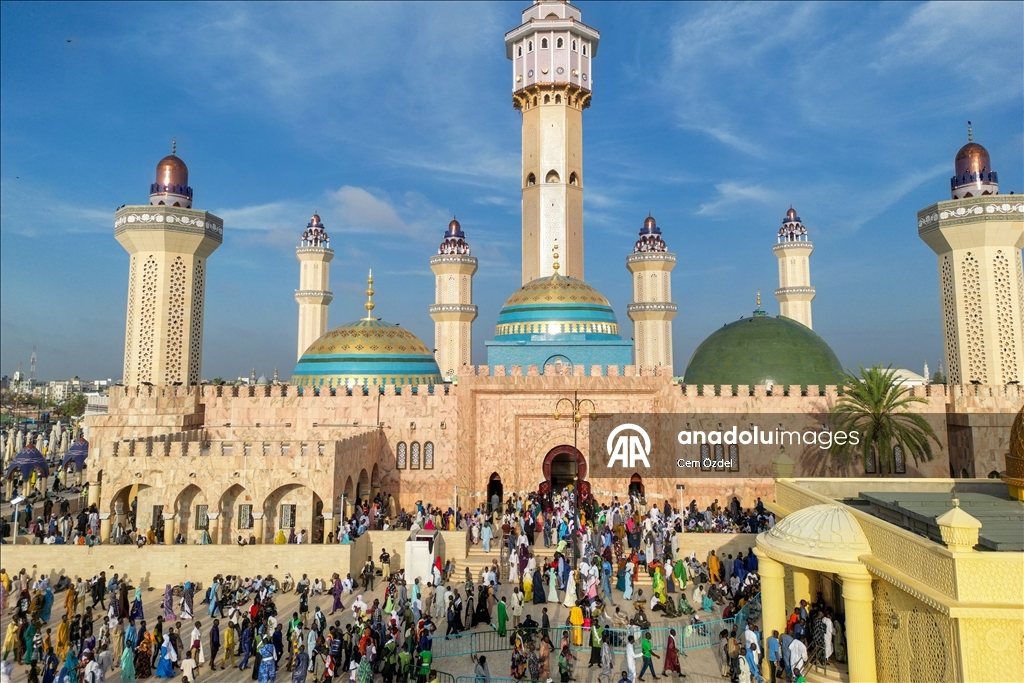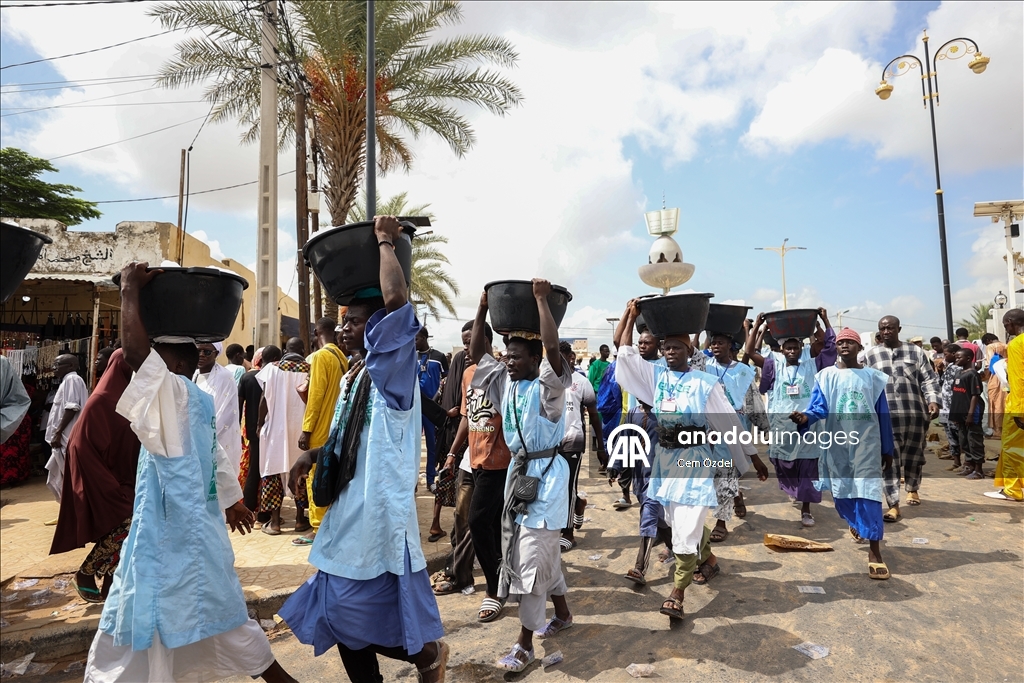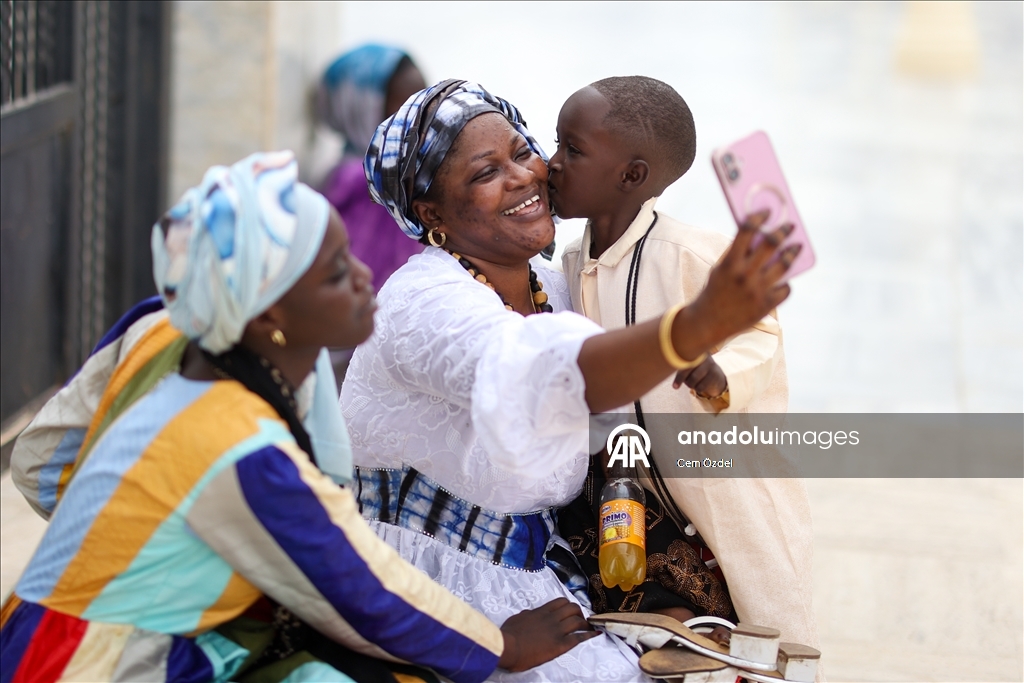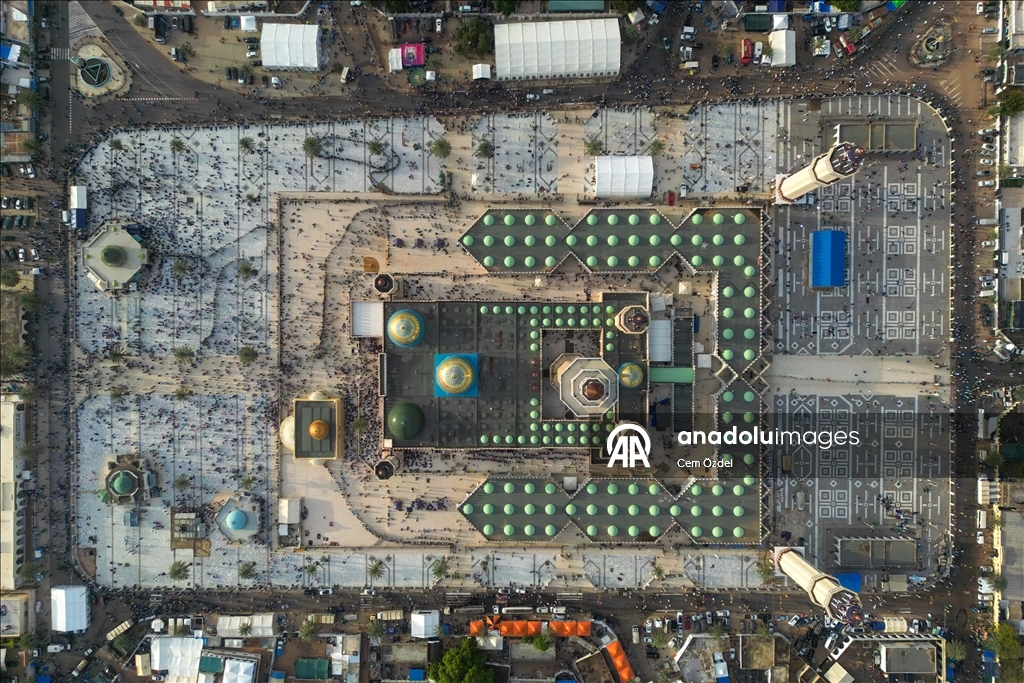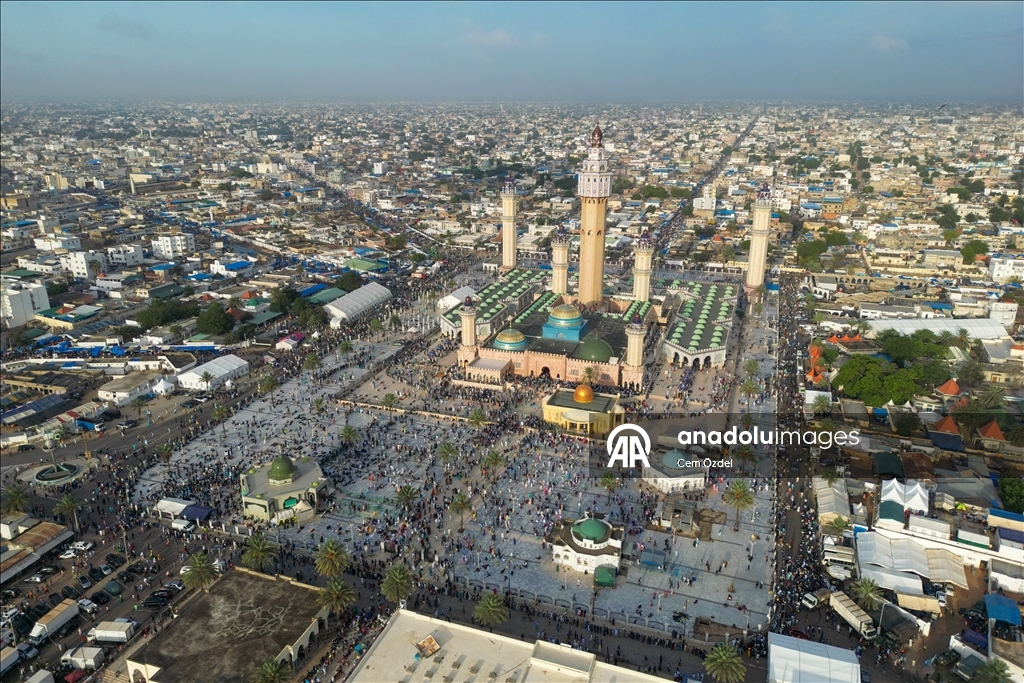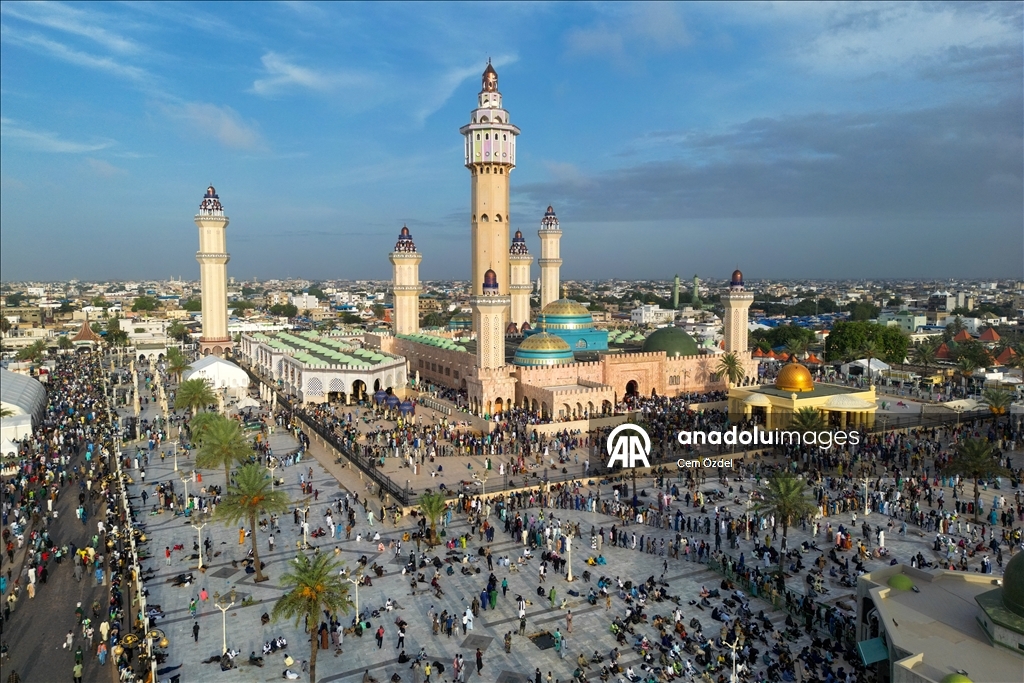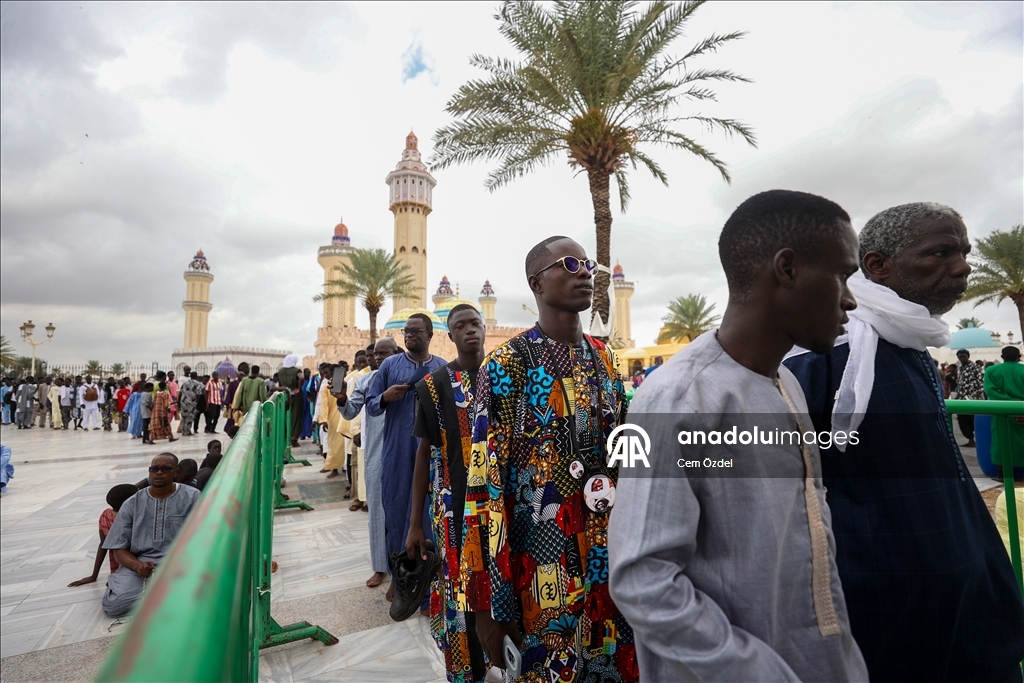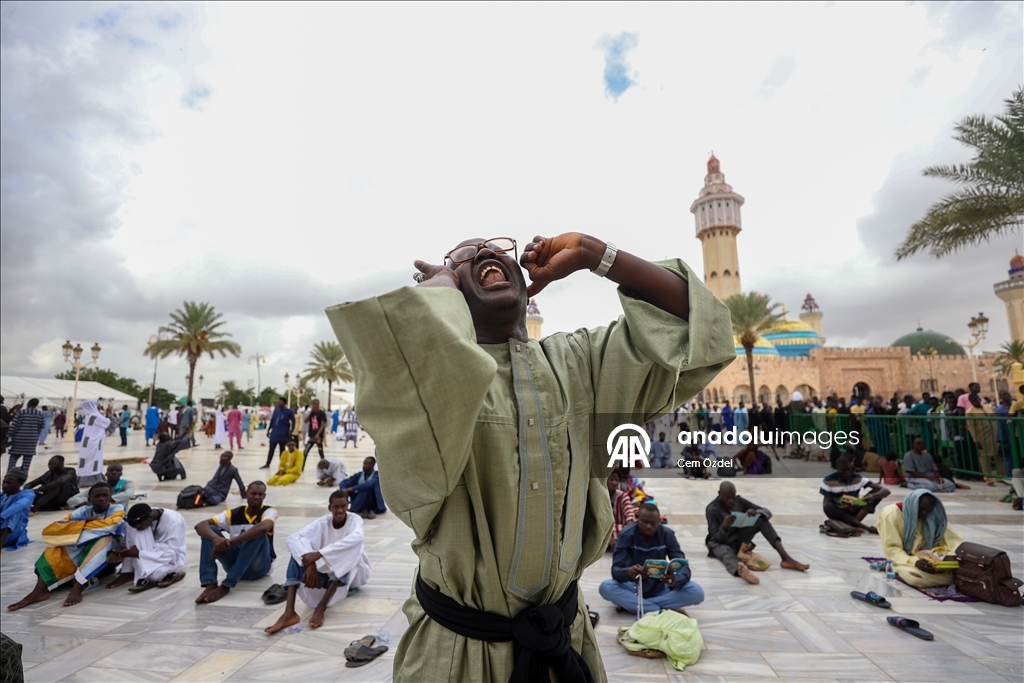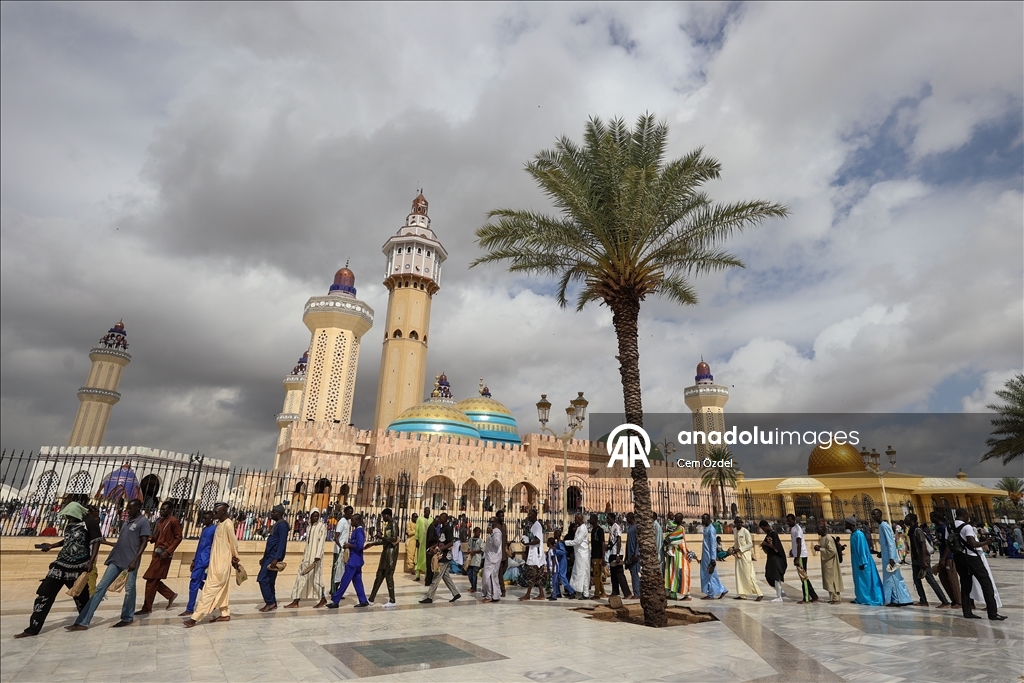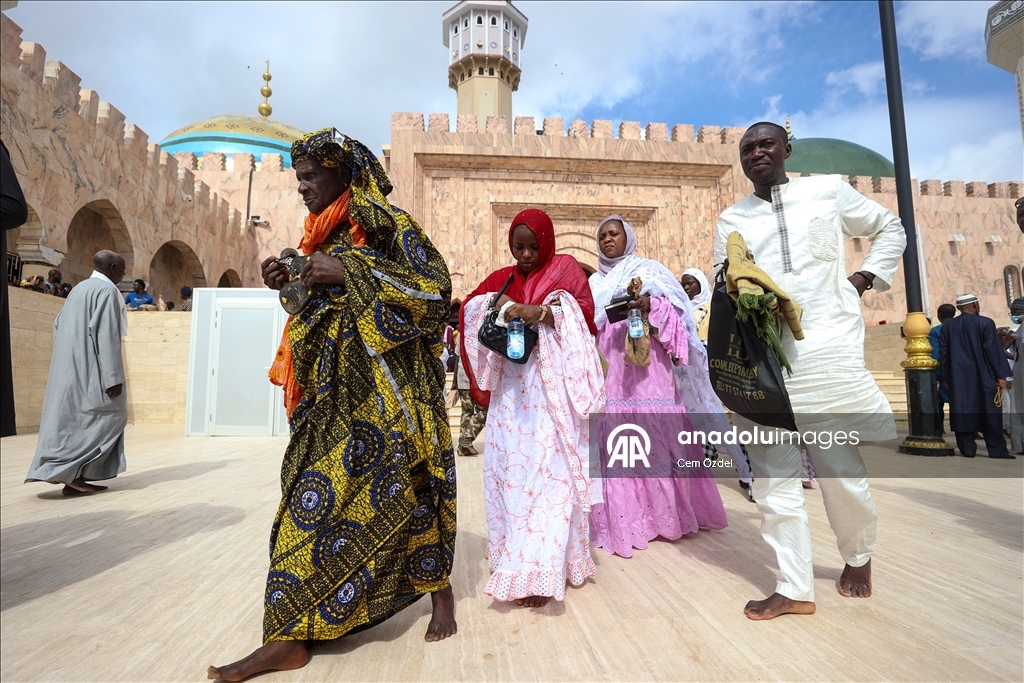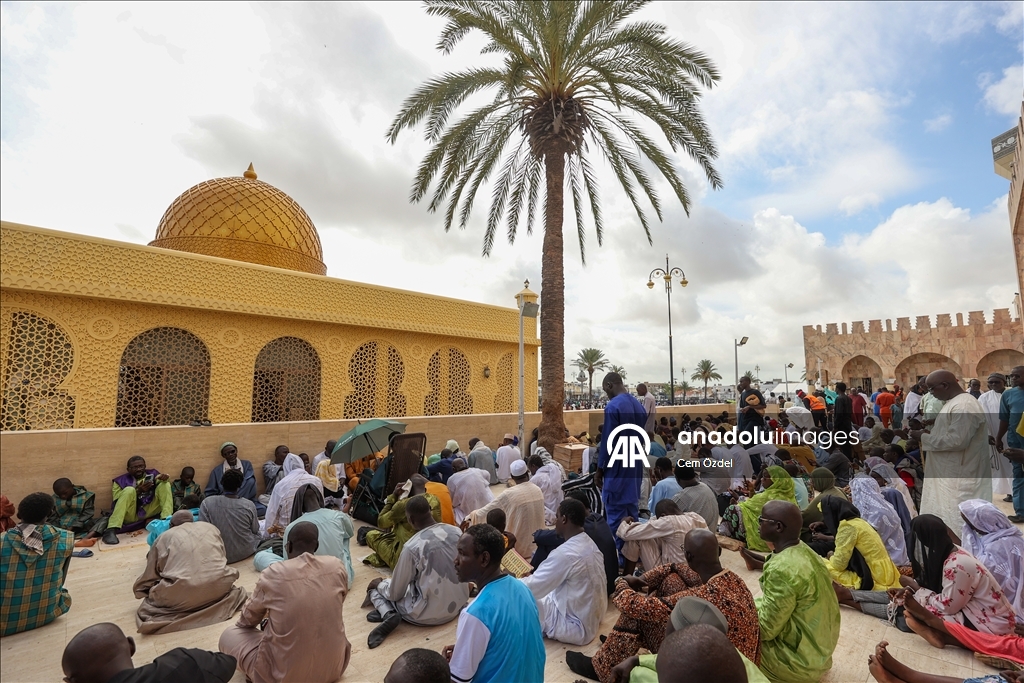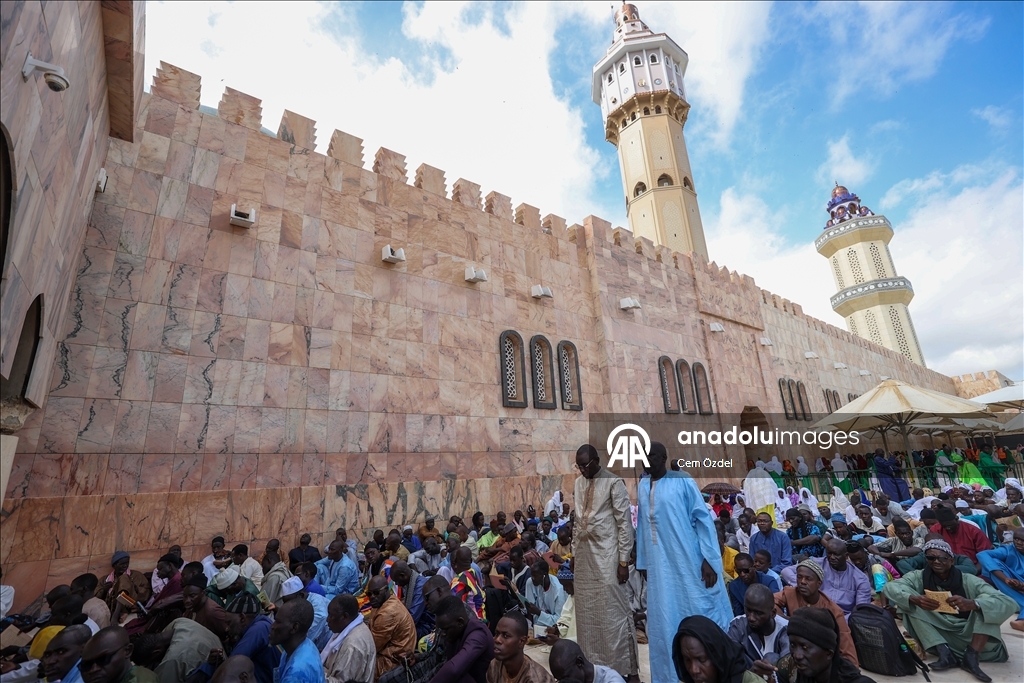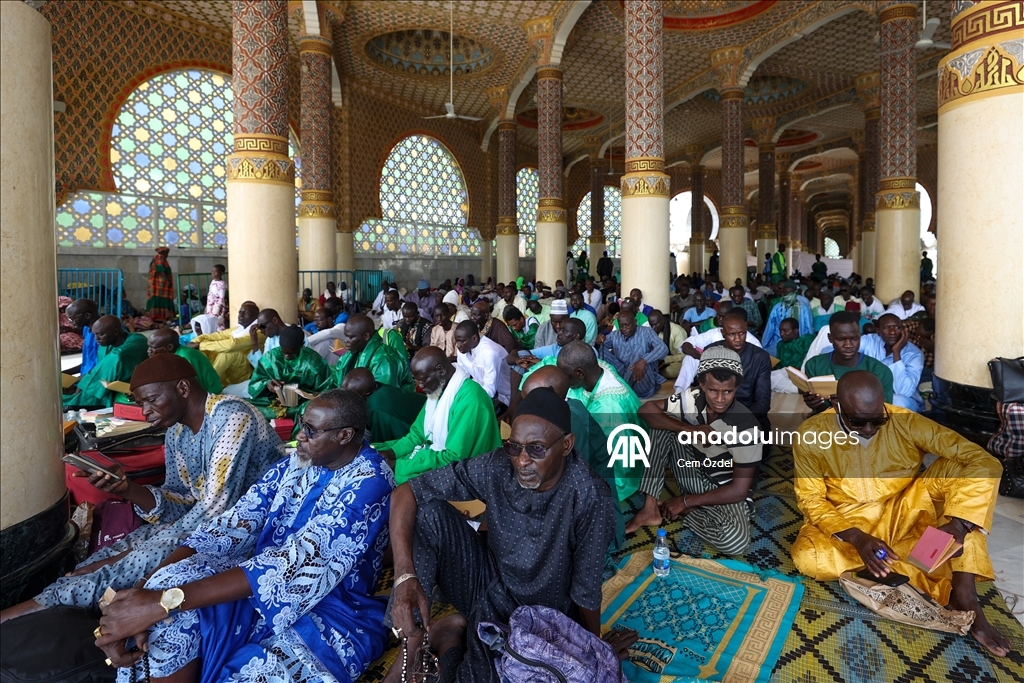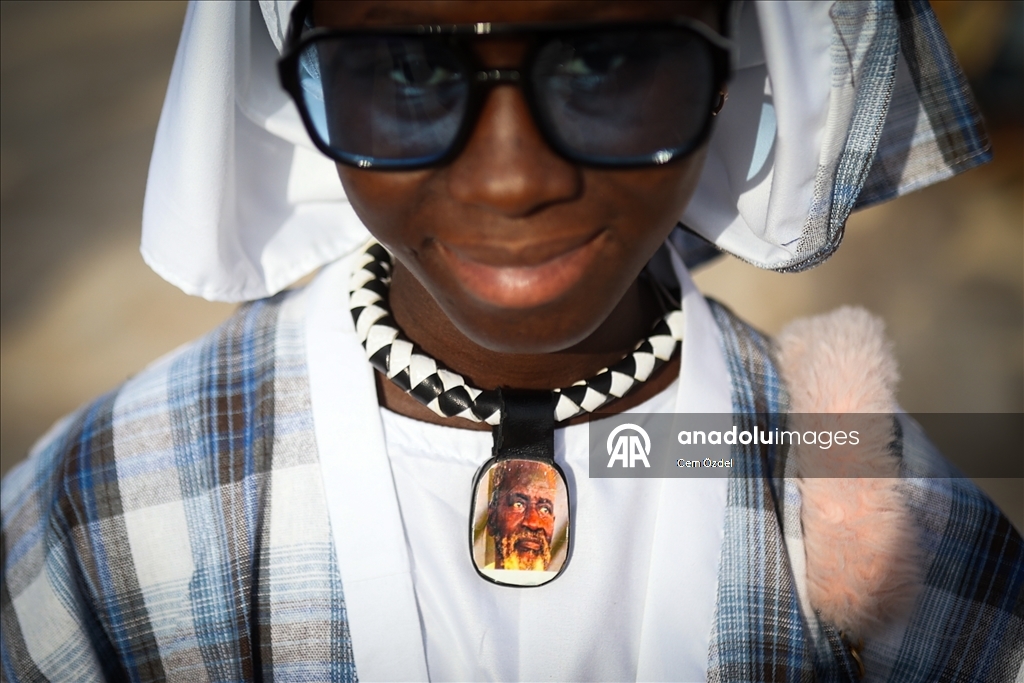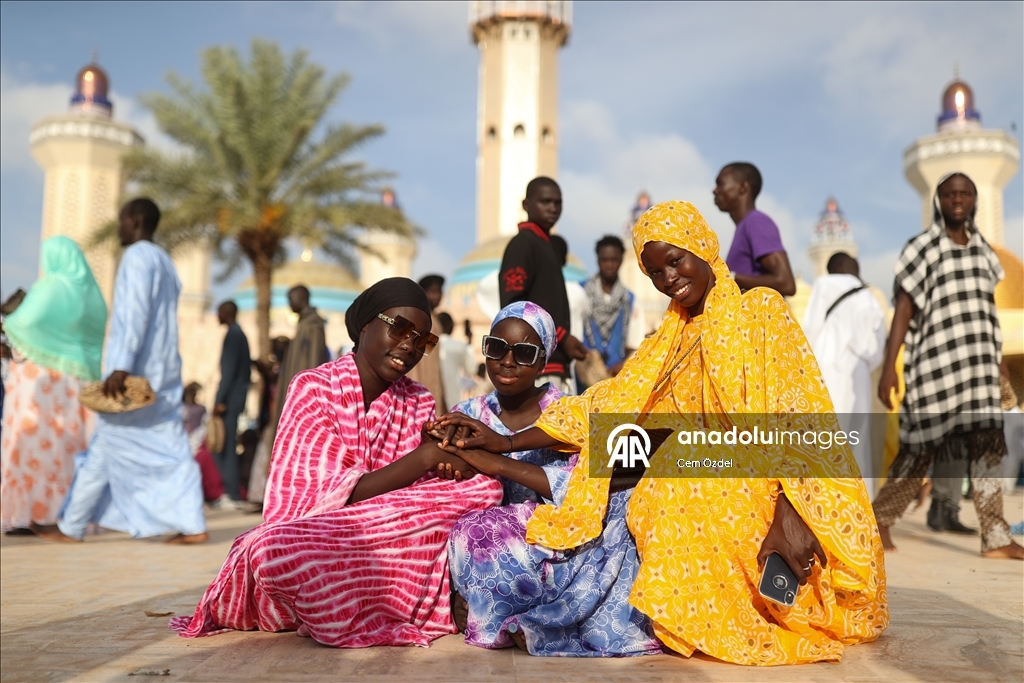Millions gather in Senegal for Grand Magal of Touba
Hundreds of thousands from across Senegal, diaspora flock to Grand Touba Mosque for annual Mouride commemoration
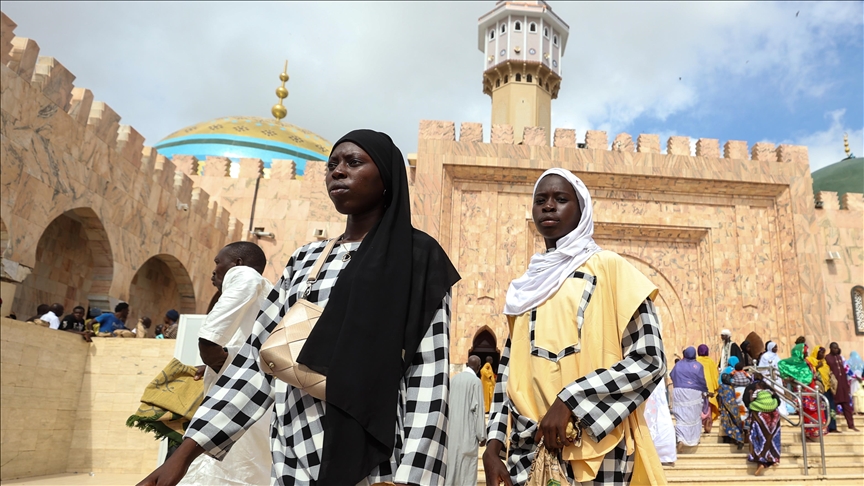 Nearly two million people gathers to commemorate the spiritual rank believed to have been attained by Sheikh Ahmadou Bamba, founder of the Mouride Sufi order, during his exile by the French colonial administration, in Touba, Senegal on August 13, 2025.
Nearly two million people gathers to commemorate the spiritual rank believed to have been attained by Sheikh Ahmadou Bamba, founder of the Mouride Sufi order, during his exile by the French colonial administration, in Touba, Senegal on August 13, 2025.
TOUBA, SENEGAL
Around two million people converged on the Senegalese city of Touba to mark the Grand Magal, commemorating the spiritual rank believed to have been attained by Sheikh Amadou Bamba, founder of the Mouride order in Senegal, during his exile under French colonial rule.
The Grand Magal, which is celebrated annually on the 18th day of the Islamic month of Safar (second month of the lunar Islamic calendar) and was held on Tuesday for the 131st time, brought Mourides together in Touba, a sacred city located 200 kilometers (124 miles) from Senegal's capital, Dakar.
Hundreds of thousands of people from across Senegal and countries with large Senegalese diasporas, such as the US, France, and Italy, formed kilometer-long queues to visit the Grand Touba Mosque and the tomb of Sheikh Amadou Bamba.
Magal, which means “praise” in the local Wolof language, celebrates the spiritual rank that Bamba is believed to have attained during his exile to Gabon in 1895.
The commemoration ceremony offers the opportunity for Mourides to gather in Touba to worship together and reunite with relatives.
'Sufi resistance' to French colonialism
Islam reached Senegal in the 11th century via traders and religious scholars from North Africa and the Middle East. By the mid-19th century and early 20th century, Sufi orders had begun to spread rapidly in the country.
Senegal was at the center of France's colonial activities in West Africa in the 19th century.
The colonial region known as “French West Africa,” which included Benin, Burkina Faso, Ivory Coast, Guinea, Mali, Mauritania, Niger, Senegal, and Togo, was administered from Senegal.
Although the French attempted to ban the spread of Islam in Senegal, they were unsuccessful due to the passive resistance of Sufi-based orders.
Senegal did not engage in armed resistance against French colonialism as Algeria did, and instead, the leaders of the Mouride and Tijani orders and Muslim merchants engaged in negotiations.
This non-violent struggle against colonialism, led by Sheikh Amadou Bamba (1853-1927), the founder of the Mourides, drew the ire of the French.
Due to his growing popularity in rural areas and the rapid expansion of the order, Bamba was exiled several times based on various charges.
Bamba spent 33 years of his life in exile or under surveillance in and outside of Senegal, and his exile in Gabon particularly played an important role in the spread of the order.
Arrested by the French army for “inciting rebellion,” Bamba was exiled to Gabon’s city of Mayumba, where he was held under surveillance by the French administration in a church for approximately 42 months, during which he wrote many religious works.
After his time in Gabon, Bamba was sent to southern Mauritania. Although he was able to return to his country in 1902, he was frequently subjected to restrictions by the colonial administration until the end of his life.
One of Africa's most important religious events
Bamba's followers view his exiles not as a defeat but as a victory that served to elevate their sheikh's spiritual status.
The exiles increased the Senegalese people's love for Bamba, leading to a growth in his followers and disciples and establishing Mouridism as a Sunni Sufi Islamic tradition in the country.
The first Grand Magal celebration, led by his son Serigne Mouhamadou Moustapha Mbacke, was organized a year after Bamba died in 1927.
Although in its initial years, the annual celebration was organized on a smaller scale, today Grand Magal is considered one of the most important religious events in Africa and draws in millions of participants.
During the annual Grand Magal, members of the Mouride order, country leaders, including the president and prime minister, businesspeople, artists, and even foreign diplomats, travel to Touba to pay their respects to the current Mouride Sheikh, Serigne Mountakha Mbacke.
Coexistence of modern secular state and conservative tradition
Bamba, who played an important role in Senegal's struggle for independence, has been likened to Mahatma Gandhi in some Western sources for his form of resistance to colonialism and the sacrifices he made, earning him the nickname Muslim Gandhi.
Senegal, which gained its independence in 1960 and became a secular independent state, has managed to preserve Sufi-based orders as an integral part of both social and political life.
According to political scientist Lucy Creevey, an unshakable balance has been established between the modern secular state and the Muslim conservative tradition in Senegal.
It is believed that this balance is behind Senegal's immunity to the influence of extremist terrorist organizations that have affected almost every other country in West Africa.
These orders are regarded as conciliatory social structures that are respected not only by their followers but also by a large part of society.

